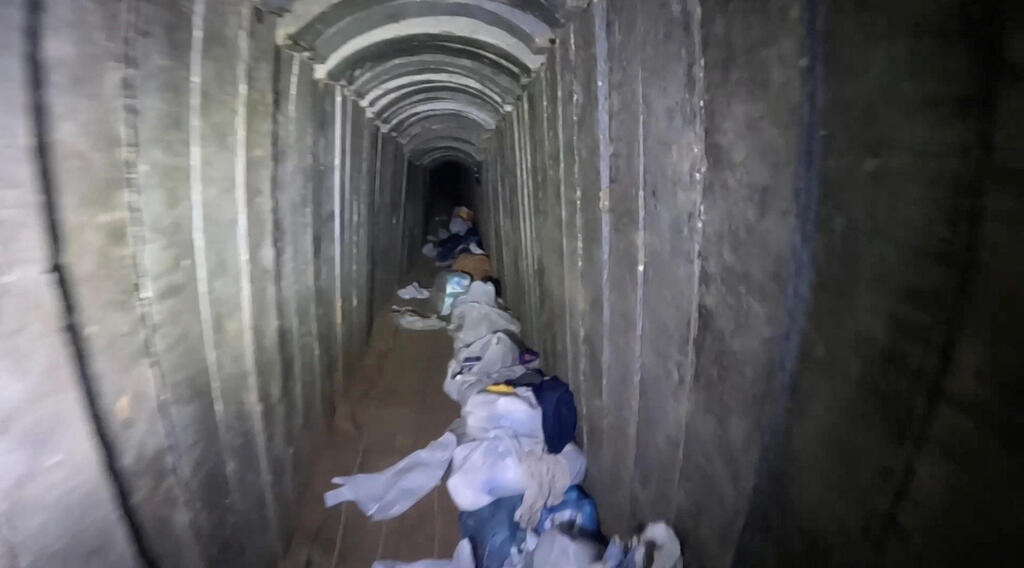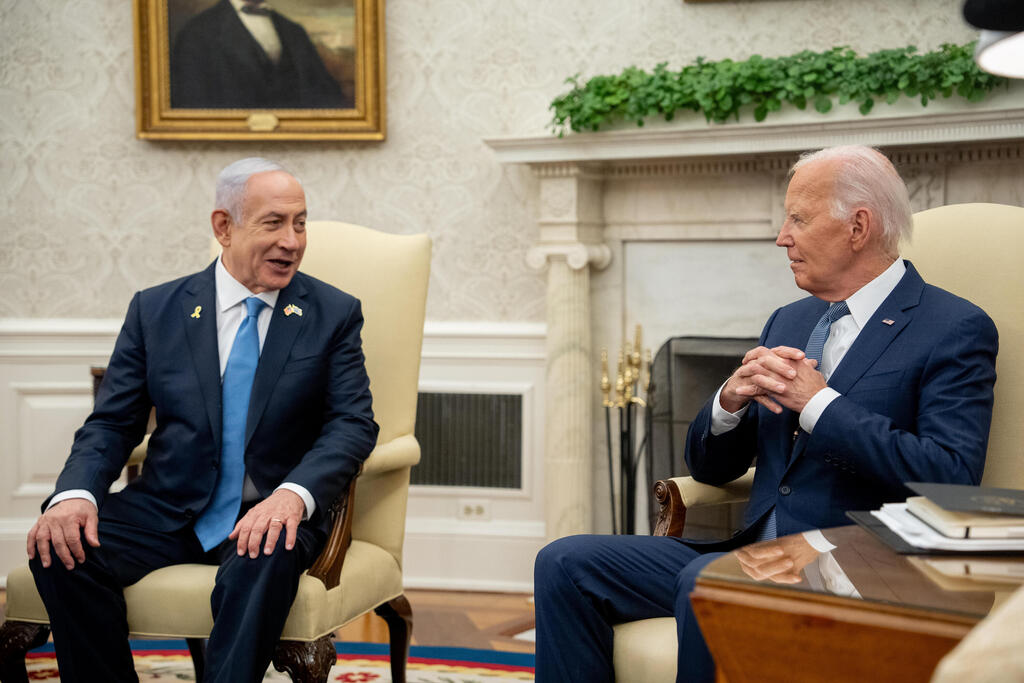Getting your Trinity Audio player ready...
A tunnel in Rafah where six hostages were held captive and executed by Hamas terrorists
(Video: IDF Spokesperson's Unit)
1.
It’s hard to decide what’s worse: the fact that tens of thousands of residents of the north haven’t been able to return to their homes for almost a year, or the failure of not bringing back the hostages still in Hamas' hands. Either way, in strategic terms, the fact that Hezbollah managed to uproot 60,000 Israelis from their homes and create a broad strip of fire several miles wide along the northern border is a serious failure, unseen since the War of Independence. It has one major root cause: The IDF couldn’t conduct fierce fighting on two fronts.
2.
The hostages. The failure isn’t that we haven’t managed to create the conditions and military pressure to make a fanatical religious murderer like Hamas leader Yahyah Sinwar agree to a second deal to release the hostages. I’m not getting into an argument as to whether Prime Minister Benjamin Netanyahu and the security Cabinet missed opportunities for deals, but the basic conditions are rather basic: Hamas can absorb heavy losses such as the destruction of its capabilities and military and civil infrastructure, and still keep functioning as a guerilla organization.
2 View gallery


A tunnel in Rafah where six hostages were held captive and executed by Hamas terrorists
(Photo: Israeli Army/ REUTERS )
Terrorist organizations don’t run a war with clear objectives, and if their forces are seriously harmed, they can’t advance. But terrorist organizations in general, and in Gaza in particular, strive to survive. In this respect, survival in Gaza is victory. This is what Sinwar is going for at this stage, and he’s refusing any deal offered to him. He still believes that a regional war will ease the pressure on him and force Israel, which he believes will be defeated in such a war, to accept his conditions and allow him to restore his, and Hamas’s power. He wants to be like Al Qaida and ISIS, presently restoring themselves under the Taliban in Afghanistan.
This is the main reason there’s no hostage deal right now. Sinwar’s views may change or soften in the future in light of the blow dealt to Hezbollah in Lebanon and the ongoing successes there - even more so if Iran doesn’t join in the war. Then, he’ll be willing to negotiate a new deal
3.
Not managing to bring down Hamas’ civilian control of Gaza and allow Israel to control humanitarian aid going into Gaza would allow the IDF to achieve one of the war’s objectives. This failing is Netanyahu’s and that of the Security Cabinet who have opposed every initiative presented by Defense Minister Yoav Gallant and the IDF to find ways to set up an alternative civilian government.
Netanyahu and his coalition partners from the Religious Zionist and Otzma Yehudit parties oppose collaborating with the Palestinian Authority regarding civilian rule in Gaza on ideological grounds. And right now, there’s no better alternative to Hamas on the horizon.
4.
The well-publicized quarrels with the American administrations that have harmed, and continue to harm, deterrence, efforts to release the hostages and the war effort in general. In most cases, both sides are guilty: The Americans for internal election considerations, and due to incorrect international strategy, keep trying to tie Israel’s hands. I’m not talking about agreeing to the humanitarian effort Washington is forced on us. In this respect, U.S. President Joe Biden probably did us a favor, as if Israel had demoed the evacuees, huddled in “open shelters,” humanitarian aid, our international legitimacy to fight in Gaza and in the north would have completely eroded and we may be facing sanctions by now.
2 View gallery


Prime Minister Benjamin Netanyahu and US President Joe Biden
(Photo: Andrew Harnik/Getty Images)
But the Americans weren’t satisfied with waving humanitarian aid in the faces of the right-wing coalition parties, but also tried influencing the war’s path by repeatedly demanding a ceasefire, long before the IDF got as far as Rafiah. They tried this by public warnings of hurting the city’s civilian population, despite the IDF proving to them that it could vacate the population before taking control on the ground. But going into Rafiah, mainly because of the Americans, was put off for months, taking the pressure off Sinwar and harming operational success.
5.
We haven’t managed to stop the international wave of delegitimization against the just war conducted so that the residents of the north and south of Israel may safely return home, to be free for years to come, of the threat of mortar fire from surrounding terror armies
Most Israelis still struggle to understand how world public opinion can have abandoned them, how they’re trying to bind its hands and accuse them of war crimes after the horrors of October 7. They need to be told that this is not only the outcome of Israel’s failure in public diplomacy and simply that Islamic elements arriving as refugees to Western countries have, over the years, taken hold of politics and changed the cultural-academic conversation to one hostile to Israel, even in places Israel had generally been supported since the 1948 War of Independence.
The cultural conversation distorting history, portraying Israel as an evil colonial element, spearheading Western imperialism, overlooking the complex historical facts of the Israeli-Palestinian conflict, is the primary cause of the collapse of legitimacy. Just as Israel found a way to turn things around military in Lebanon, it needs to find a way to turn things around in terms of international legitimacy.
Get the Ynetnews app on your smartphone:





